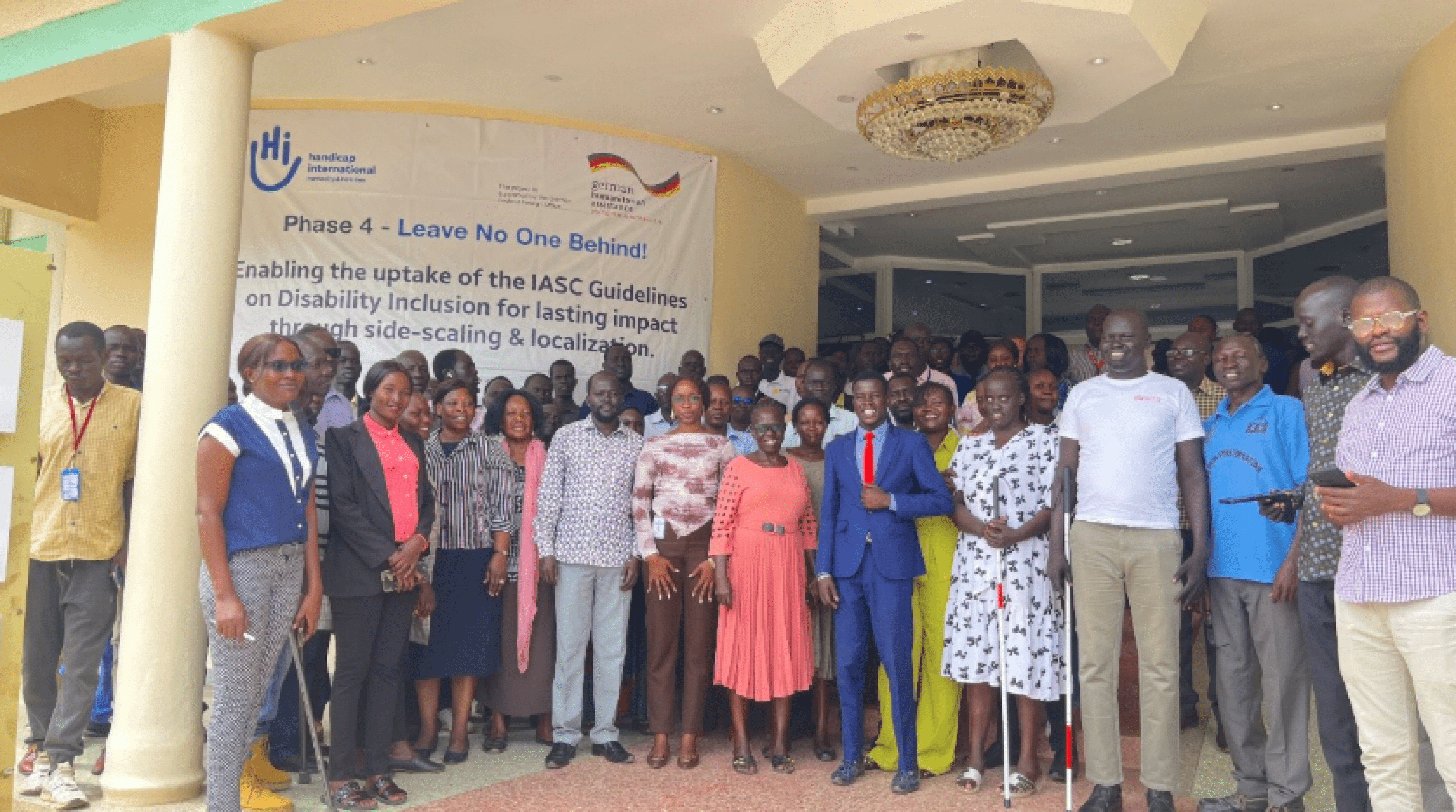
© HI
The Phase 4 – Leave No One Behind! project kick-off meeting was held on 20th May 2025 at the Glory Regency Hotel in Juba, South Sudan. Organized by HI’s South Sudan team, the meeting marked the official launch of the fourth and final phase of the project in the country, which aims to strengthen the integration of disability inclusion into humanitarian coordination systems through localization and side-scaling approaches.
The event brought together 91 participants, including representatives from the WASH, Health, and Protection Clusters, Organizations of Persons with Disabilities (OPDs), and officials from the Ministry of Gender, Child and Social Welfare (MGCSW).
The main goal of the meeting was to present the project’s Phase 4 objectives and activities, consult with stakeholders, and facilitate a smooth transition from Phase 3. It also created space to gather feedback, strengthen ownership, and ensure shared understanding among all actors, particularly around the sustainability and localization of disability-inclusive practices as the project series approaches its close.
Abraham Nhial, Deputy Director at the Ministry of Gender, Child and Social Welfare, expressed appreciation for HI’s inclusive approach:
“This joint kick-off meeting with Partners and OPD leaders is imperative as it enhances networking and collaboration between partners and OPDs,” he continued. “We request all partners to meaningfully involve persons with disabilities at all levels and ensure that their assessment tools are disability inclusive.”
Chandiga John, Coordinator from the African Disability Forum, added:
“Humanitarian actors shouldn’t consider persons with disabilities as mere beneficiaries, but rather as actors. They should be involved in all stages of the project cycle.”
Another participant shared their thoughts, saying:
“This project is an eye-opener for us. We believe it will not only change our perception towards persons with disabilities, but also support our organizations to become more disability-inclusive.”
The event provided clarity on the transition between project phases, detailed upcoming activities, and outlined engagement expectations. Participants expressed a stronger understanding of how the project aligns with their mandates and how it can enhance their disability-inclusive programming efforts.
Text and photo by Obale Musa, HI South Sudan